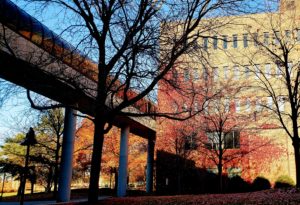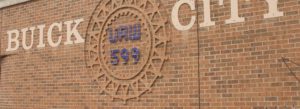By Paul Rozycki
We may be in the midst of record-breaking heat during these dog days of August, and the political future may be as hazy as the Michigan horizon on a humid summer evening, enveloped in Canadian forest fire smoke.
But with all the risks, and in no particular order, here are a few things we should be watching as we move into the cooler winds of autumn this year. They all deserve our attention, and any of these may deserve a full column in the future.
- More criminal indictments of former President Trump. It seems likely that Trump will face criminal charges over his involvement in the Jan. 6 insurrection and the attempt to overturn the 2020 election, his handling of classified documents after he left the White House, as well as the charges surrounding the Stormy Daniels affair. Many of those trials will take place during the campaign. So far, the indictments have increased Trump’s fundraising efforts and he has held his support among his base voters. If convicted, will he serve jail time? If he’s acquitted, will he declare victory and boost his campaign? Will these charges have any impact on Trump’s support or the 2024 election?
- Charges against false electors. Attorney General Dana Nessel brought criminal charges against 16 individuals who falsely claimed to be the legitimate electors in Michigan in an attempt to overturn the 2020 election.

Michigan Attorney General Dana Nessel speaking at a campaign stop for Gov. Whitmer in the Fall of 2022 near Bishop Airport. (Photo by Tom Travis)
Several were Republican Party leaders and local elected officials. Six other states also had false electors who attempted to block the 2020 vote. Will the other states follow Michigan’s actions, and will there be federal charges that might include Donald Trump?
- The Republican debates. The Republican Party has planned debates for the dozen or more candidates who are vying for their party’s presidential nomination. Will any of them be able to take on Donald Trump, who remains the front-runner in spite of criminal indictments and all the turmoil that comes with the former president? Will any of them be willing to confront Trump, or will Trump’s opponents split up the vote and give Trump the nomination as in 2016?
- Supreme Court student debt ruling. With the recent U.S. Supreme Court rulings that blocked the forgiveness of college student debt, what response will follow? The Biden administration has now proposed to modify and limit student debt, short of a full forgiveness, but those plans will likely face legal barriers as well. Will they survive court challenges?
- Affirmative action on college campuses. With the Supreme Court decision limiting race-based affirmative action programs, colleges are now trying to find other ways to bring diversity to their campuses, such as considering income, high school ranking, or other factors. Will those be as effective as the traditional affirmative action programs, and will they be legally supported?

French Hall on the UM-Flint campus in downtown Flint. (Photo by Tom Travis)
- Repeal of Right to Work and the union movement. A decade ago, to the surprise of almost everyone, Michigan, a strong union state, passed a “Right to Work” law that limited labor unions’ ability to require membership or financial support as part of employment. Recently Michigan became the first Right to Work state in decades to repeal the law. Unions have been in decline since the early Reagan years and the middle class has shrunk at the same time.

As workers are in greater demand in nearly every enterprise, will we see a resurgence of the union movement and perhaps a return of the growth of the middle class? A number of major corporations are seeing their employees attempt unionization for the first time. We’ve seen strikes from Hollywood writers and actors, and there is a possibility that the UAW may be looking at a walkout, as contract negotiations begin in the fall. - The No Label Party. Third parties have a long history in the U.S. Though they rarely win elections, they can have a major impact on who does win, and what the major issues are. Some feel that Ralph Nader’s third party candidacy prevented Al Gore from winning in 2000, and many felt that Ross Perot made balancing the budget a key issue for Bill Clinton in the 1990s. Some suggest that third party candidates helped Trump win the Electoral College in 2016. Most polls show that the public is not very excited about a rematch between Democrat Joe Biden and Republican Donald Trump. In response, a third party, the No Label Party, is planning to put forward a candidate that may draw from both parties. But it’s unclear who may be their nominee, what their platform or issues might be, or the impact they could have on the 2024 election. Because some of the major supporters of the No Label Party are Republican, some fear that they could pull votes away from Biden and give Trump the advantage.
- City council elections and politics. In Flint, two-thirds of the Flint City Council members are facing recalls, and a new councilperson will be appointed in the 7th Ward. Will this change any of the current conflict and chaos in the council or will the attempted recalls simply increase the conflict and hostility in the council?

Flint City Council in session at the Dome auditorium. From left to right: Councilpersons Eric Mays (Ward 1), Ladel Lewis (Ward 2), Quincy Murphy (Ward 3), Judy Priestley (Ward 4), Jerri Winfrey-Carter (Ward 5), Tonya Burns (Ward 6), now former Councilperson Allie Herkenroder (Ward 7), Dennis Pfeiffer (Ward 8) and Eva Worthing (Ward 9). (Photo by Tom Travis)
Will Flint finally distribute its ARPA (American Rescue Plan Act) funds, in spite of a lawsuit over the creation of the ARPA committee? Also, Burton is holding its city council elections and may see a significant change in a number of positions.
- Flint schools and the demolition of Washington school. The current plans are to begin the demolition of the burned out remains to Washington School on Flint’s east side, at the end of the summer.

The burnt remains of the majestic Washington Elementary School on Flint’s east side. (Photo by Paul Rozycki)
Will that be a motive for the Flint Community School board to begin to get rid of the many vacant and deteriorating buildings that it currently owns? Will there be any less conflict on the board in the future and will they be able to reverse the downward slide in Flint school enrollment?
- Dutta to leave U of M-Flint. At the U of M-Flint, Chancellor Debasish Dutta is leaving for a new position at the University of Illinois after a short tenure in Flint. What does that mean for the proposed move to a more occupational and technical role for the Flint campus? Will a new chancellor continue the shift away from a liberal arts campus? Will a he or she be able to reverse the decline in student enrollment and graduation rates? Will they be more open to listening to faculty, staff, and the community?
All of these are worth watching.
The autumn weather may be cooler, but this fall may generate more political heat than we’ve seen this summer.
EVM political columnist Paul Rozycki can be reached at paul.rozycki@mcc.edu.







You must be logged in to post a comment.